Understanding Heroin
Learn about heroin and substance abuse
Heroin, also known as diamorphine is a synthesized opioid analgesic derived from the Asian opium poppy plant. When used, heroin converts to morphine in the body. In medicine, diamorphine is used to treat severe pain, such as from a heart attack, cancer, or burns. In fact, the term “heroin,” is only used when describing the illegal street form of the drug. Other street names for heroin include “black tar,” “smack,” “H,” “horse,” “brown,” “tar.”
Heroin is often used on the streets as a recreational drug known for the feelings of wellbeing and the joy that it provides users. People who abuse heroin report feeling an intense rush, a transcendental feeling of euphoria, while the drug is being metabolized into morphine in the brain. Tolerance, the need for more heroin to produce similar feelings of euphoria, develops quickly.
Heroin has many methods of abuse – it can be injected intravenously, inhaled by snorting or sniffing, or smoked. Each route of administration crosses the blood-brain barrier quickly, which leads to health risks and a high risk for addiction. Heroin addiction is known as a chronic, relapsing disease that is characterized by changes in the brain and uncontrollable drug-seeking behaviors despite the negative consequences.
When heroin enters the brain, the drug is converted back into morphine, which binds with the opioid receptors, located in many areas of the brain and body. Opioid receptors are involved in pain perception and reward. As opioid receptors are also located in areas that are critical for life, such as arousal, blood pressure, and respiration, overdoses on heroin can be deadly. Most often, heroin overdose typically involves respiratory depression and collapse, which can quickly become fatal.
After IV injection of heroin, users report a rush of euphoria, along with a dry mouth, warm flushing of the skin, heaviness in the arms and legs, and decreased mental functioning. After the initial rush passes, a heroin user then goes “on the nod,” which is an alternating state between wakefulness and sleep. The initial rush may not be experienced by those who do not inject heroin, but the other symptoms do follow.
Chronic use of heroin will change the structure and functioning of the brain, leading to tolerance and dependence. Physical heroin dependence is evidenced by the need to continue using the drug to avoid unpleasant withdrawal symptoms. Psychological dependence occurs when an individual firmly believes that he or she cannot function without heroin. Both of these forms of dependence are addressed in a proper rehab setting.
Statistics
Heroin addiction statistics
It’s reported that worldwide, over 50 million individuals use heroin, cocaine, and synthetic drugs on a regular basis. In 2011, 4.2 million Americans over the age of 12 (1.6% of the population) reported having used heroin at least once in their lifetime. It’s been estimated that approximately 23% of individuals who have used heroin become dependent upon it.
Co-Occurring Disorders
Heroin addiction and co-occurring disorders
Heroin addiction can occur with a number of mental illnesses. These mental illnesses that co-occur with heroin addiction include:
- Depressive disorders
- Anxiety disorders
- Bipolar disorder
- Schizophrenia
- Eating disorders
- Post-traumatic stress disorder
- Personality disorders
- Other substance addictions
- Alcoholism
Causes and Risk Factors
Causes and risk factors of heroin addiction
While researchers have yet to pinpoint a single root cause for heroin addiction, addiction has long been thought to be the result of several factors working interchangeably to cause addiction. Some of the most common causes for heroin addiction may include:
Genetic: Individuals who have a family member, especially a first-degree relative with addiction disorders are more prone to develop an addiction themselves. While this is not a definitive prognostic indicator, it does increase the chances for the development of addiction.
Brain Chemistry: As heroin binds to opioid receptors in the brain leading to a surge of pleasurable feelings, it’s been postulated that individuals who are lacking in the neurotransmitter dopamine, “the pleasure chemical,” may attempt to correct this deficiency by abusing drugs that produce the same feelings of pleasure.
Environmental: Individuals who grow up in a home environment that is filled with unpredictability and drug abuse may learn that drug addiction is the proper way to handle negative emotional states. Additionally, individuals who abuse drugs at an early age are more likely to develop an addiction to heroin or other substances later in life.
Psychological: Individuals who are struggling with untreated or undiagnosed mental illnesses may attempt to self-medicate the symptoms of their illness with alcohol or recreational drugs.
Signs and Symptoms
Signs and symptoms of heroin addiction
The signs and symptoms of heroin addiction will vary among users based upon genetic makeup, amount of drug used, frequency of use, and dependency on the drug. The most common symptoms of heroin addiction include the following:
Mood symptoms:
- Depression
- Euphoria
- Mood swings
- Anxiety
- Hostility toward others
- Agitation and irritability
Behavioral symptoms:
- Lying about drug use
- Avoiding loved ones
- Increased amount of time spent obtaining, using, and recovering from heroin abuse
- Decreased attention to personal hygiene
- Possession of burned spoons, needles or syringes, missing shoelaces, glass pipes
- Stashing drug in various places around the home, car, and work
- Periods of hyperactivity followed by periods of exhaustion
- Inability to fulfill responsibilities at work or school
- Increased sleeping
- Apathy and lack of motivation
- Decline in occupational or academic performance
- Slurred, garbled speech
- Wearing long pants and shirts, even in warm weather
- Going “on the nod” during conversations
- Forced, pressured speech
Physical symptoms:
- Track marks on arms and legs
- Constantly running nose
- Shortness of breath
- Nausea and vomiting
- Frequent respiratory infections
- Dry mouth
- Warm, flushed skin
- Constricted pupils
- Heaviness in arms and legs
- Extreme itching
- Weight loss
- Scabs or bruises as the result of picking at the skin
Psychological symptoms:
- Delusions
- Disorientation
- Hallucinations
- Paranoia
Effects
Effects of heroin addiction
The effects of heroin abuse will differ from person to person, depending upon the length of abuse, amount used, individual makeup, and life circumstances. The most common effects of heroin addiction may include:
- Liver disease
- Skin disease and abscesses around injection sites
- Infections of the valves and lining of the heart
- Clouded mental functioning
- Itching
- Collapsed, scarred veins
- Blood clots, leading to stroke, pulmonary embolism, and heart attack
- Kidney disease
- Risks of contracting chronic illnesses
- Risks for blood-borne pathogens
- Septicemia
- Respiratory depression
- Seizures
- Overdose
- Death
Withdrawal Symptoms
Withdrawal symptoms of heroin addiction
Individuals who struggle with heroin addiction often find that the withdrawal symptoms keep them from successfully kicking the habit. It’s important for individuals struggling with heroin withdrawal should only do so under the supervision of trained medical professionals in a rehab setting. Withdrawal from heroin can be an unpleasant experience and may include symptoms such as:
- Intense drug cravings
- Extreme sweating
- Nausea and vomiting
- Feelings of heaviness of the body
- Extreme pain in muscles and bones
- Cramping in the arms and legs
- Crying jags
- Insomnia
- Cold sweats
- Runny nose
- Fever
- Diarrhea














